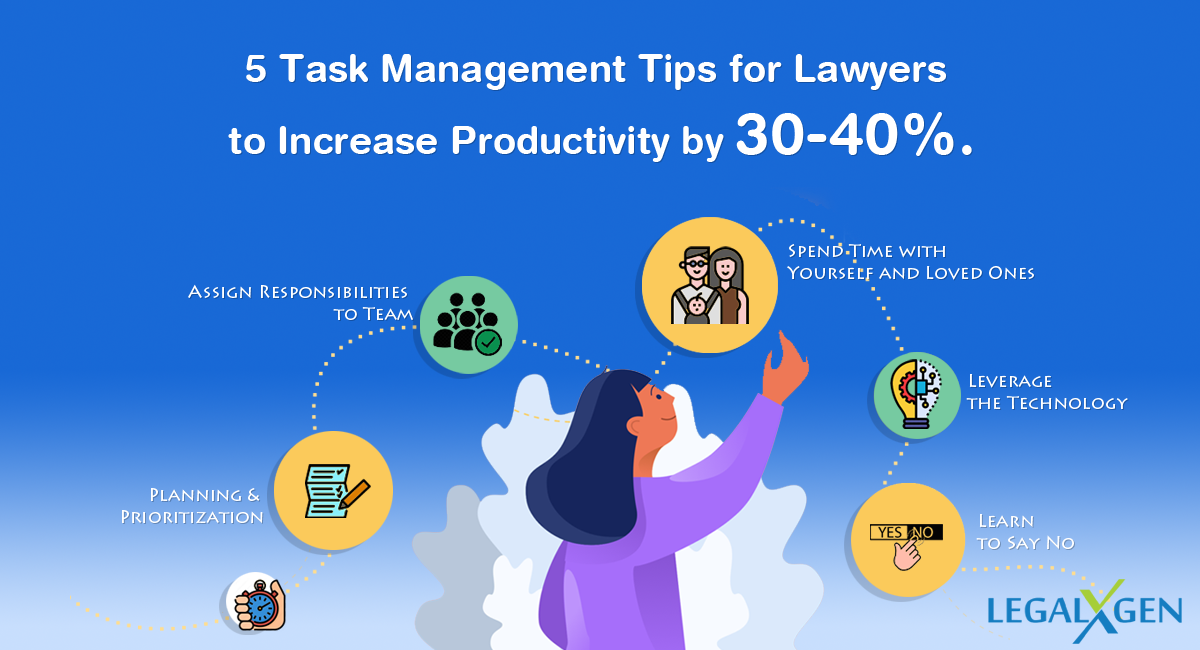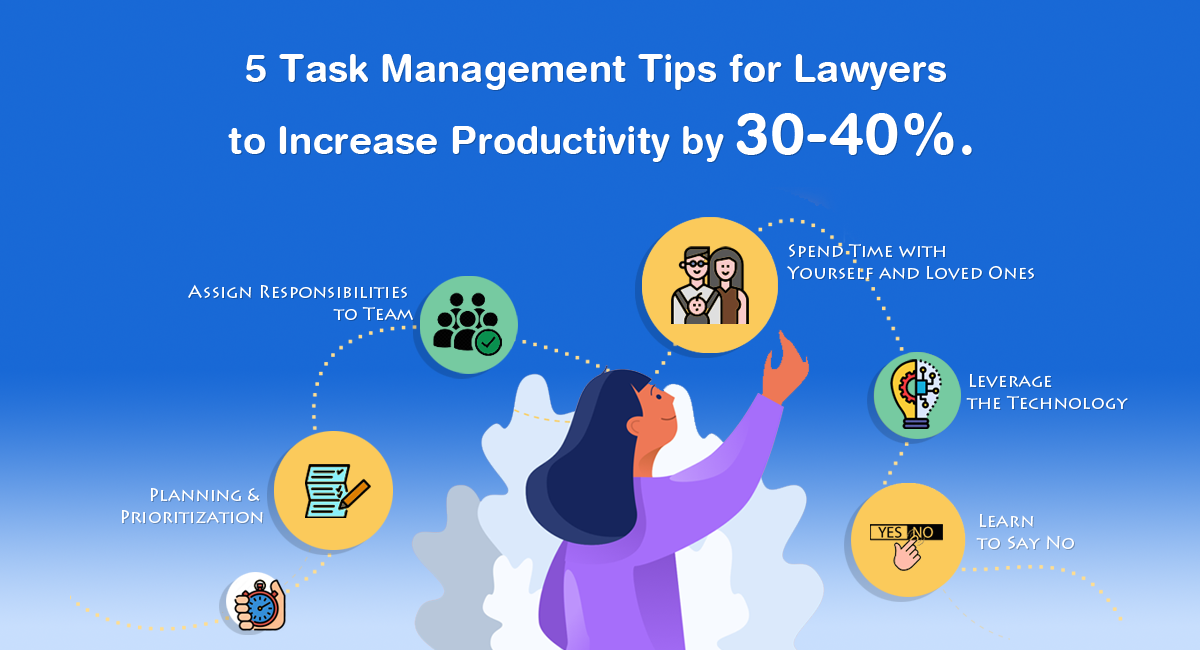
Before we begin to discuss “why time management is very much important for the lawyers”, let’s have a statistic on the average working hours for a lawyer vs other professionals.  So, the average working hours for a lawyer is typically 60-65 hours/week where for the other professionals it’s just 40—45 hours/week. This simply tells a successful lawyer is significantly busier than many other professionals. One interesting fact usually, during the typical working day the most lawyers are busy at a minute level.
So, the average working hours for a lawyer is typically 60-65 hours/week where for the other professionals it’s just 40—45 hours/week. This simply tells a successful lawyer is significantly busier than many other professionals. One interesting fact usually, during the typical working day the most lawyers are busy at a minute level.
|
 |
What makes a lawyer busy?
- Court Hearings
- Events & Networking
- Client Calls & Meetings
- Studying Rules of Procedures
- Team Management
- Execution of the Deals
- Billing & Recovery
What are the biggest mistakes made by a lawyer?
- Delay in Client Correspondence
- Lack of Respect for Deadlines
- Not Billing Enough Hours
- Ignoring Business Development
- Increasing stress level
- Work-life imbalance
What you achieve with time management?
-
- On-time delivery of your work with better quality
- Increase in productivity
- Less stress
- Better work-life balance
- Growth in terms of career and financials
In fact, good time management is not about working for long hours but is to work efficiently. A study from Stanford University says those who work more than 55 hours/week get less work done than the one who is working less. So, the idea is to get more done in less time.
So, let’s discuss now how to deal with time management to make you more efficient and productive.
- Planning & Prioritization
- Make a task list. Priorities as per your own criteria such as Client and deadline etc.
- Plan your weeks. It should include the planning of your days as well.
- Estimate and track your time accurately.
- Reduce the distractions
- Organize your desk and computer. You ay use proper directory structure and shortcuts.
- Use the calendar to mark your schedule.
- Delegate to Team
Delegating the task to the team not only important for you but for grooming the team as well. Let’s see how it could be beneficial to you and the team.
- It makes your time free and available for other important stuff.
- Evolve the team in terms of various skills e.g., Subject Matter, Client Management, and Admin Work, etc.
- Good culture is created where each one learns from others.
- Makes the team Collaborative, Efficient, and Productive.
- Increases the flexibility of your team.
- Spend Time with Yourself and Loved Ones
There is a famous dialogue “Keep the personal and professional separate” which is not possible practically. It’s always one reciprocates to the other. Let’s be pragmatic and understand along with your busy schedule it’s equally important to be with yourself and the family. It helps you in many aspects such as:
- Reduces the stress level and anxiety. Also, it improves your mental health drastically.
- It helps your children perform better in academics, sports, and life skills. After all, they are the future they need to be trained and made ready.
- Lowers risk of behavioral problems.
- Boosts the self-confidence.
- Gives the ability to face changes and challenges comes in life
- Leverage the Technology
Technology can act as a catalyst in your time management practice. You could use the technology for the following:
- Track and analyse your billable hours.
- Tasklist, prioritization, and completion
- Plan your meetings with the help of calendars
- Billings and Recovery
- Task assignment and tracking the deadlines.
- Learn to Say No
In professional life many times we come across the situation where we accept something beyond our schedule or competencies. It leads to bitterness in the relationship. When you’re in the business this bitterness could have bigger consequences.
So, sometimes you should be able to “Say No” considering your professional boundaries either in terms of your schedule, competency, or could be something that’s not letting you focus. Though the word ‘No’ sounds pessimistic, it helps you to maintain healthy relationships and gives clarity to others about what they should expect from you.

Ashish has 15+ years of experience in Enterprise Applications.
A Technology, Process & Productivity Expert for the law firms from last one decade.
 English
English French
French German
German